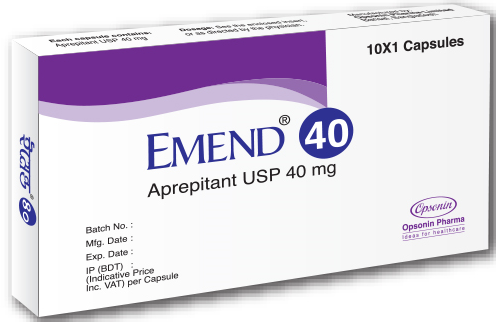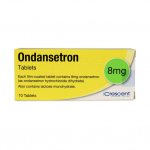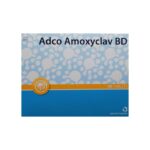Emend: Uses, How it works, Dosage, Side Effects, Interactions

Emend is a medication that contains the active substance aprepitant, an antiemetic, a medicine that prevents nausea (feeling sick) and vomiting.
Emend is used in patients aged from 6 months to prevent nausea and vomiting caused by chemotherapy (medicines used to treat cancer). It is used with chemotherapy that is a moderate or strong trigger of nausea and vomiting.
How does Emend work?
Aprepitant, the active substance in Emend, is a neurokinin 1 (NK1) receptor antagonist. It prevents a chemical in the body (substance P) from attaching to the NK1 receptors. When substance P attaches to these receptors, it causes nausea and vomiting. By blocking the receptors, Emend can prevent nausea and vomiting caused by chemotherapy.
Is Emend effective?
Studies indicate that Emend is effective at preventing nausea and vomiting following chemotherapy when added to other standard treatments. Its main side effects were manageable.
How is Emend used?
Emend is available as capsules and as a powder to be made up into an oral suspension (a liquid to be drunk). The medicine can only be obtained with a prescription.
Emend capsules are used in adults and children from 12 years of age; children between 6 months and 12 years of age are given an oral suspension. Only a healthcare professional should prepare the oral suspension of Emend.
The usual dose of Emend in adults and children from 12 years of age is 125 mg by mouth one hour before the start of chemotherapy and 80 mg each day for the next two days. It is given with other medicines that also prevent nausea and vomiting such as dexamethasone and ondansetron.
In children between 6 months and 12 years of age, Emend oral suspension is given and the dose depends on the patient’s weight. Emend oral suspension is given one hour before the start of chemotherapy, and once a day for the next 2 days.

What benefits of Emend have been shown in studies?
Three main studies have been carried out with Emend capsules involving around 2,000 adults receiving chemotherapy. They compared the effectiveness of Emend, taken in combination with dexamethasone and ondansetron, with that of the standard combination of dexamethasone and ondansetron alone. The main measure of effectiveness was the number of patients who had no nausea and vomiting in the five days after receiving chemotherapy.
The studies showed that adding Emend to the standard combination was more effective than the standard combination alone. In two studies involving patients receiving chemotherapy including cisplatin, 68% of the patients taking Emend had no nausea or vomiting over 5 days (352 out of 520), compared with 48% of the patients who did not take it (250 out of 523). Emend was also found effective during a further five cycles of chemotherapy. In the third study in patients who received chemotherapy with cyclophosphamide, 51% of the patients taking Emend had no nausea or vomiting (220 out of 433), compared with 43% of the patients who did not take it (180 out of 424).
A fourth study was carried out in 307 children from 6 months to 17 years of age, where Emend taken with ondansetron (with or without dexamethasone) was compared with ondansetron alone (with or without dexamethasone). The main measure of effectiveness was ‘complete response’, defined as no vomiting, retching, or dry heaves and no need for any other medication to control nausea and vomiting 25 to 120 hours after the start of chemotherapy. The study also looked at how many patients achieved a complete response in the first 24 hours after chemotherapy.
In this study, around 51% (77 out of 152) of children given Emend with ondansetron had a complete response 25 to 120 hours after beginning chemotherapy, compared with 26% (39 out of 150) of children given ondansetron alone. Emend was also effective in the first 24 hours after chemotherapy.
What are the risks and side effects associated with the use of Emend?
The most common side effects with Emend in adults are:
- Constipation
- Dyspepsia (indigestion)
- Headache
- Hiccups
- Increased liver enzymes (a sign of liver problems)
- Loss of appetite and fatigue (tiredness).
In children, the most common side effects are hiccups and flushing.
What drugs can interact with Emend?
Emend must not be used with the following medicines:
- pimozide (used to treat mental illness)
- terfenadine and astemizole (commonly used to treat allergy symptoms)
- cisapride (used to relieve certain stomach problems).
Emend can make birth control pills less effective, resulting in pregnancy. This effect can last for up to 28 days after your last dose of this medication. For the full list of side effects and restrictions with Emend, see the package leaflet.
How to ensure the safe and effective use of Emend?
Recommendations and precautions to be followed by healthcare professionals and patients for the safe and effective use of Emend have been included in the summary of product characteristics and the package leaflet.
As for all medicines, data on the use of Emend are continuously monitored. Side effects reported with Emend are carefully evaluated and any necessary action is taken to protect patients.





